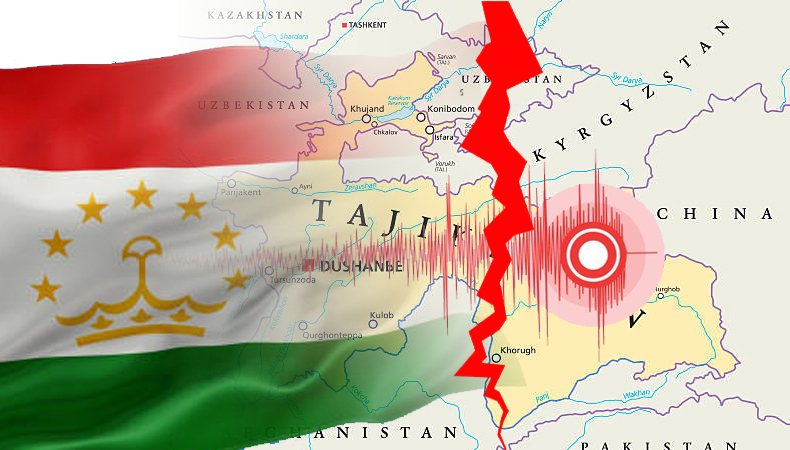6.8 magnitude quake jolts Tajikistan near China border, 6.4 tremor gets Lebanon on panic mode

A powerful 6.8 magnitude earthquake struck eastern Tajikistan early morning on Thursday, with tremors felt in China and other neighbouring countries. Although the quake hit the sparsely populated mountainous Gorno-Badakhshan autonomous region, the area is home to a gigantic lake that if disturbed could inundate a large region spanning several countries.
The lake doesn’t appear to have been disturbed by the earthquake, Tajik authorities informed. The quake was followed by at least two aftershocks. Several people in the nearby Rushon district of Gorno-Badakhshan rushed into the streets after being woken up by the tremors, a local resident said.
So far, there are no reports of casualties in the country or neighbouring China. Local authorities were inspecting tunnels, bridges, and signal equipment in some areas of China’s western Xinjiang region where the earthquake was strongly felt, Chinese state television CCTV reported, putting the magnitude of the quake at 7.2.
The previous day, early on Wednesday, a small quake struck south Lebanon, triggering intense panic as residents ran outside barefoot, with many saying they “feared for their children’s lives.”
Read | Shamima Begum: Brit who joined ISIS as a teen loses UK citizenship appeal
The 4.3 magnitude earthquake, the latest in a series of minor tremors, further terrified Lebanese still recovering from the deadly disaster in Turkey and Syria that has already killed over 47,000 people.
Several people have expressed concern over whether their buildings can withstand a violent quake and if they will be abandoned to their fate by the state. Many were also alarmed by photos showing a substantial drop in the sea level, with some connecting the phenomenon to the recent tremors hitting the region.
However, Milad Fakhri, director of the National Center for Marine Sciences, suggested that it was in no way related to the earthquakes, nor is it an early sign of a potential tsunami.
Lebanese must accept that their country is located in a seismic zone, earthquake researcher Tony Nemer from the American University of Beirut said, highlighting the need for people to remain calm.




